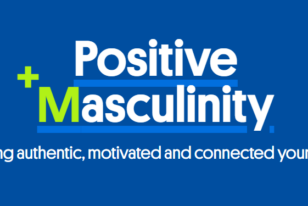Parenting boys into healthy adult men
What can parents do?Adolescence is a critical window for boys in which they’re beginning to shift into their adult patterns of health behaviours, particularly heightened health risk behaviours.
This is a time when health behaviours get created that tend to last into adulthood. Healthy choices and behaviours now are probably healthy choices and behaviours later.

The importance of social relationships
A critical health behaviour is creating and maintaining social relationships. Long-term healthiness is strongly associated with having good social relationships.
The Harvard Study of Adult Development found the warmth and the quality of relationships with other people were the strongest predictors of who stayed happy and healthy as they went through life.
The importance of social relationships is critically contrasted with evidence that adult men tend to have smaller social networks and fewer friendships, are less likely to have a close confidant, particularly someone other than a spouse/partner, and in times of stress mobilise less varied social support. To address this concern, parents can intentionally support the skills and ability to maintain healthy relationships in boys.

How do parents support the tools of building healthy relationships in their sons?
Cultivate social fitness: intentional tending to our relationships just like we take care of our physical health through physical fitness.
- Parents are the coaches in creating social fitness/ healthy connection patterns. Be intentional in sharing and modeling what you expect from your son.
- Tell him when and why you expect calls, time together, and how that time together is spent.
- Recognise that boys are often socialised into behaviours and attitudes that can foster disconnection: toughness, stoicism, control. This may lead some boys to be cut off from their own feelings and may undermine their own ability to understand the feelings of others (empathy) and emotional regulation.
- When talking with your son or intervening with him, emphasise understanding and validating his experience (simply reflecting what you are hearing) rather than trying to control the situation or show irritation.
- It is difficult to disagree and be upset with someone who is actively listening and validating one’s experience.
- In difficult moments, hold the space with your son without needing to fix it or explain it with your son through curiosity (to take an interest in what they’re sharing, ask questions) and empathy (feeling the feelings of another).

Positive relationships with parents and adults matter for boys.
These relationships validate and reflect who he is and can be a safe place to question and challenge what he is seeing and experiencing around him.
If you notice that a relationship has become weakened or broken between you and your son, it is your job as the adult – as the relationship manager with years of experience – to repair the breakdown. That job falls to the adult, not the child. You have to maintain the connection.
Prof Matt Englar Carlson
Department of Counselling
California State University, Fullerton





